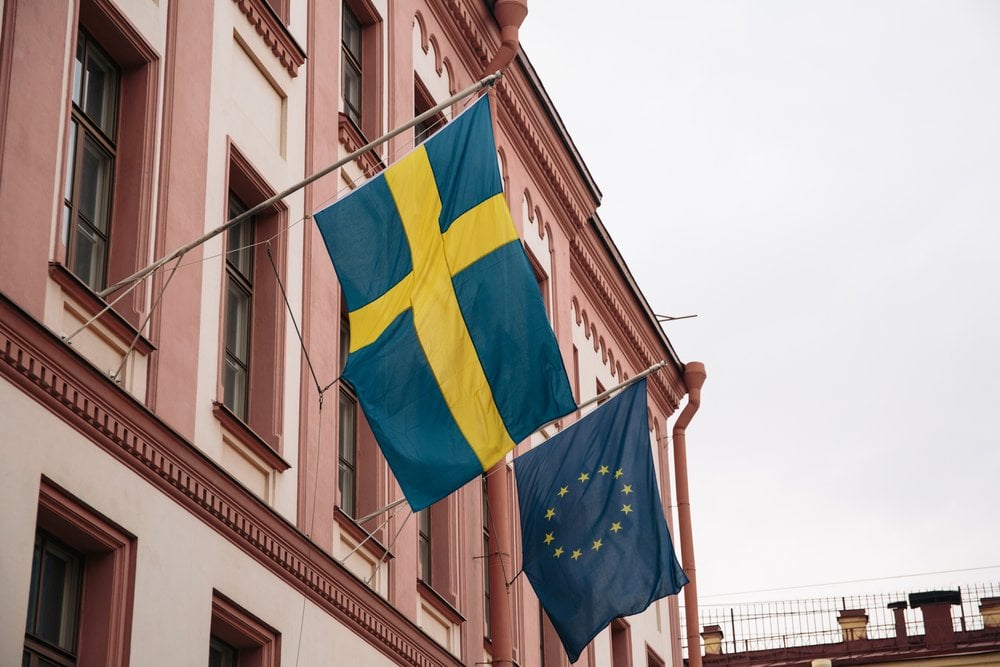Sweden’s Gambling Industry Was Worth $2.67B Last Year
Posted on: March 7, 2022, 11:14h.
Last updated on: March 7, 2022, 12:10h.
Sweden’s gaming industry had a good year last year. With the final numbers in place, the sector took in $2.67 billion in revenue.

Sweden’s gaming regulator, Spelinspektionen, just reported the country’s gaming figures for 2021, and things are looking good.
Online gaming in the country was up 6% more in 2021 than the previous year. In addition, lottery and slot machine sales also increased by 6%.
The COVID-19 pandemic forced Sweden to introduce spending limits for the iGaming sector in 2020. These remained in place into November 2021 but didn’t have a major negative impact on the overall revenue for the year. The gaming total in 2021 was SEK26 billion (US$2.67 billion).
Sweden’s Growing Gaming Industry
Spelinspektionen benefited last year, as well. Its income rose by 0.8% from 2020 to 2021, closing at SEK53.1 million (US$5.32 million). It took in SEK13.7 million (US$1.37 million) in fines and other fees, 25.7% more than in the prior year.
More operators showed interest to join the market, even as COVID-19 was proving problematic. The regulator had to sift through 622 license requests last year, 104 more than it did in 2020. Spelinspektionen approved 287 new applications, while it rejected eight.
As a result, there were 2,252 active licenses at the end of 2021. There will be more this year, as many of those submitted last year came toward the end of the year. This means Spelinspektionen is working through the stack now.
Problem Gambling Low
Sweden’s national self-exclusion system is working well. 71,000 people registered by the end of the year with Spelpaus.se, 11,000 more than a year earlier.
The regulator examined consumer trends and found that 73% of Swedes had gambled in the past 12 months. Lotteries were the most popular and dominant method of betting. In addition, 21% reported that they bet on horse racing.
Spelinspektionen issued eight decisions regarding compliance and licensing duties against offshore companies that illegally targeted Swedish consumers. Companies like Lotto Direct were penalized for selling unlicensed games, while other operators, such as Mr. Green, were fined with anti-money-laundering failures.
In addition, 7% of the gamblers said they had played with an operator that was not licensed in Sweden. Another 12% replied that they were unaware of the website they were gaming with is registered in Sweden.
The Public Health Agency of Sweden reports that the percentage of problem gamblers in the country is around 1%.
Related News Articles
Most Popular
LOST VEGAS: ‘Tony The Ant’ Spilotro’s Circus Circus Gift Shop
Las Vegas Overstated F1 Race’s Vegas Impact — Report
Mega Millions Reportedly Mulling Substantial Ticket Price Increase
Las Vegas Strip Stabbing Near The Strat Leaves One Man Dead
Most Commented
-
End of the Line for Las Vegas Monorail
— April 5, 2024 — 90 Comments -
Mega Millions Reportedly Mulling Substantial Ticket Price Increase
— April 16, 2024 — 6 Comments -
Long Island Casino Opponents Love New York Licensing Delays
— March 27, 2024 — 5 Comments
















No comments yet